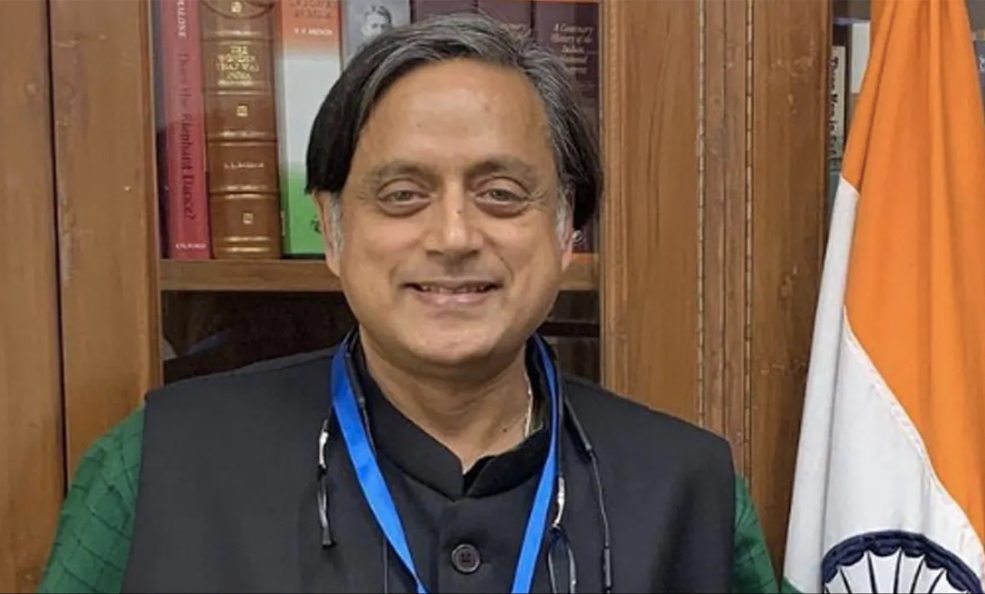Address
304 North Cardinal St.
Dorchester Center, MA 02124
Work Hours
Monday to Friday: 7AM - 7PM
Weekend: 10AM - 5PM

When Shashi Tharoor rises to speak in India’s Lok Sabha, his eloquent command of the English language captivates audiences far beyond the parliamentary chamber. This multilingual orator, acclaimed author, and seasoned diplomat has carved a unique niche in Indian politics by seamlessly weaving his expertise in English Literature with his role as a Member of Parliament. Tharoor’s journey from a young writer penning his first novel to becoming one of India’s most articulate voices on the global stage exemplifies how literary prowess can enhance political discourse and national development. His ability to articulate India’s complex narratives through the lens of English Literature has made him an indispensable figure in contemporary Indian politics, transforming how the nation presents itself to the world.
Born in London in 1956 to Malayali parents, Shashi Tharoor’s formative years were spent in Bombay and Calcutta before his family settled in Kerala. His early exposure to multiple cultures and languages laid the foundation for his later mastery of English Literature. Tharoor’s academic brilliance became evident during his undergraduate years at St. Stephen’s College, Delhi, where he excelled in History before pursuing his doctorate in International Relations from the Fletcher School at Tufts University.
The turning point in Tharoor’s career came with the publication of his debut novel “The Great Indian Novel” in 1989, a satirical retelling of the Mahabharata set against India’s freedom struggle. This literary masterpiece established him as a significant voice in English Literature, demonstrating his ability to blend Western narrative techniques with Indian storytelling traditions. His subsequent works, including “Show Business” and “Riot,” further cemented his reputation as a writer who could navigate complex themes of identity, culture, and politics with remarkable dexterity.
Tharoor’s contributions to English Literature extend far beyond fiction writing. His non-fiction works, particularly “An Era of Darkness: The British Empire in India,” have sparked international debates about colonialism and its lasting impact. This meticulously researched book, which began as a speech at Oxford Union, showcases how his expertise in English Literature enables him to deconstruct historical narratives with scholarly precision and literary flair.
During his 29-year tenure at the United Nations, Tharoor served as Under-Secretary-General for Communications and Public Information, becoming the highest-ranking Indian official in the organization’s history. His role required him to communicate complex international issues to global audiences, a task made possible by his deep understanding of English Literature and cross-cultural communication. His ability to craft compelling narratives about peacekeeping, human rights, and sustainable development helped reshape how the UN engaged with media and civil society.
The recognition of Tharoor’s dual expertise came through numerous accolades, including the Pravasi Bharatiya Samman, India’s highest honor for overseas Indians, and several literary awards. His books have been translated into multiple languages, with “The Great Indian Novel” being adapted for stage and screen, demonstrating the universal appeal of his literary voice.
Since entering Indian politics as a Member of Parliament from Thiruvananthapuram in 2009, Tharoor has brought his English Literature background to bear on crucial policy debates. His speeches in Parliament are studded with literary references, historical analogies, and linguistic precision that elevate political discourse. Whether discussing foreign policy, cultural heritage, or social justice, Tharoor draws upon his vast literary knowledge to articulate complex positions with clarity and conviction.
His work on the Parliamentary Standing Committee on External Affairs has been particularly noteworthy, where his expertise in English Literature helps him analyze international relations through cultural and historical lenses. Tharoor’s recent interventions on issues ranging from digital privacy to cultural diplomacy reflect his understanding that effective governance requires both literary sensibility and practical wisdom.
As an advocate for preserving India’s linguistic diversity while promoting English as a bridge language, Tharoor has consistently argued that proficiency in English Literature enhances rather than diminishes Indian identity. His efforts to promote Indian writing in English on international platforms have opened new avenues for cultural exchange and soft power projection.